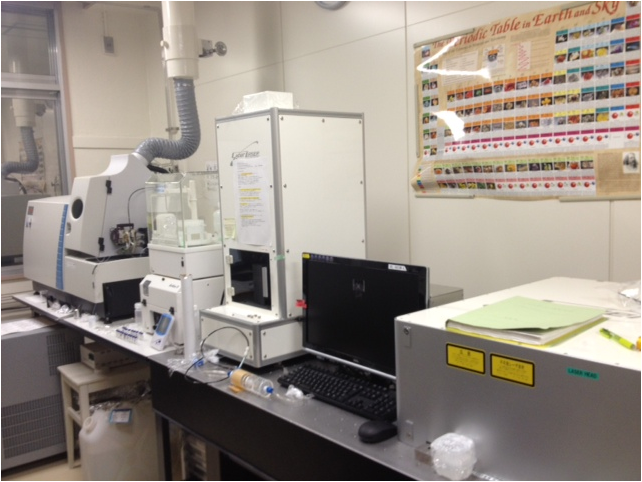
ICP-MS (Inductively Coupled Plasma Mass Spectrometry)
X-Seris 2 (Thermo Fisher Scientific)
ICP-MS is mass spectrometry that uses inductively coupled plasma as an ion source. Plasma is an ügionized gasüh that consists of cations that are ionized at high temperatures, free electrons, and neutral molecules and atoms. Although the state of plasma is almost electrically neutral, it is different from normal gas because the constituent particles have a charge. Plasma is one of the four fundamental states of matter in physics, which is different from
solid, liquid, and gas. Argon plasma is commonly used for the analysis of trace element in rock samples with ICP-MS. Our ICP-MS instrument consists of several sections including sample introduction system, plasma generation, sampler/skimmer interface, ion optics, and mass spectrometer. In the sample introduction system, the sample solution is aspirated by a peristaltic pump and converted into aerosol by nebulizer. Only small size droplets in the aerosol are allowed to pass through the spray chamber for effective ionization by Ar plasma generated inside of a plasma torch made of quartz. The generated ions are introduced into the vacuum system through the interface consisting of sampler cone and skimmer cone, both of which have a tiny hole in the middle of the cone. The ion beam introduced into the mass analyzer is focused by the ion optics and the separation of mass is carried out by a quadrupole mass filter. Finally, the ion beam current is measured by a secondary electron multiplier (SEM).